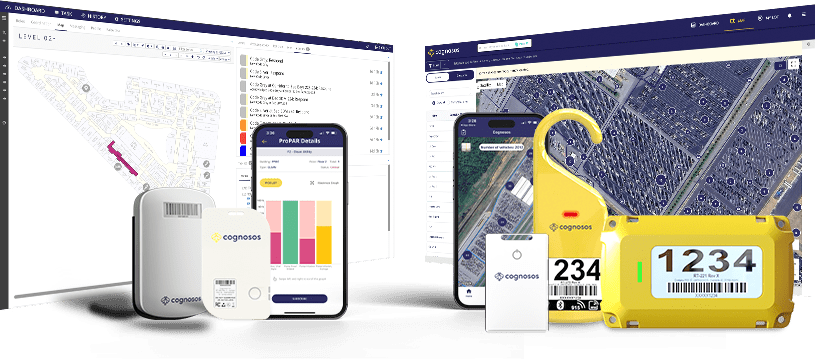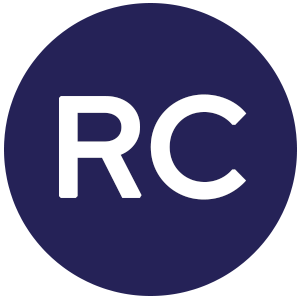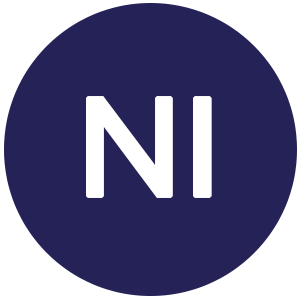Hospitals and healthcare facilities seeking to implement a real-time location system (RTLS) should select a vendor whose product offers cutting-edge technology and a clear path to ROI. It is equally important however, that the vendor has implementation staff that are familiar with the healthcare environment.
Vendors with this type of healthcare expertise can provide insight for hospitals about how to get the most value from their RTLS. They also understand their place in the pecking order of the facility’s priorities, ensuring that the installation and deployment of the RTLS is successfully completed, while minimizing impacts to patient care.
Here are four ways an RTLS vendor with vast experience in healthcare can make a system installation and deployment process smoother and more successful:
1. They understand how healthcare facilities work.
Facilities like hospitals, clinics, and specialty care centers are dynamic spaces. Situations often arise during an RTLS implementation that takes priority over the deployment of a technology system. A seasoned RTLS team inherently understands this. They know that critical care comes first, and IT comes second.
Sensitive to the facility’s workforce and visitors alike, these staff recognize windows of opportunity for access and work around escalating patient situations. Most importantly, they’re able to balance the RTLS’ technology and infrastructure priorities with the needs and unique challenges of the facility itself.
2. They will work to custom-fit the RTLS into the facility’s architecture.
A healthcare-experienced vendor knows that no two facilities are alike, and that taking a one-size-fits-all approach to an RTLS installation won’t be successful. Their implementation staff will walk the halls alongside facility staff to see firsthand what the facility presents structurally while also considering the organization’s budget constraints.
As a specific example: RTLS solutions are not sold as “security systems,” but by monitoring key points of egress, the technology can help reduce accidental loss. Managing all entrances, stairwells, and exits in a large facility like a hospital, however, can be expensive. Working with a healthcare-experienced vendor can help a facility identify key exits used by patients, transport, and equipment maintenance set the system to monitor just those exits. This ensures the RTLS can deliver value to the organization at a cost they can afford.
3. They know they must account for other technology the facility uses.
Hospitals and other healthcare facilities use a lot of technology—and it’s imperative that the RTLS not impact that equipment. An experienced RTLS implementation team will engage the IT staff early in the planning process to learn about the facility’s current IT landscape and ask about any restrictions regarding aesthetics, infection prevention standards, and patient safety regulations. For example, some sites may have restrictions for hanging additional hardware in already-full IT closets, while others may prefer that RTLS hardware be in an accessible, moderately restricted area.
Collaborating with the organization’s RTLS champions, the implementation team will recommend the least intrusive locations for the system’s hardware, make compromises for challenge and high-visibility locations, and ensure that RTLS equipment does not impede clinical operations.
4. They know how to communicate effectively in the healthcare environment.
An implementation team with healthcare experience knows the importance of respecting hospital staff. They’ll engage key nursing leadership when they arrive at a new unit and learn about unique circumstances surrounding staff, patients, and visitors in that unit. These essential clinical leaders are instrumental in helping the implementation team share information with the unit’s staff and gain their buy-in for the implementation and use of the system.
Healthcare-experienced RTLS implementation teams also understand that clinical staff are busy focusing on patient care, and it’s paramount to provide detailed information up front about the scope of work and the expected time needed to complete it. Finally, these teams recognize the value of listening and adapting to healthcare workers’ needs. A flexible implementation team is willing to compromise with those on the front lines; they know this is more effective than digging in their heels with an unrealistic, cookie-cutter approach to system deployment.
Benefit from Cognosos’ Broad Healthcare Expertise
Some healthcare organizations have vendor credentialing processes, which can be helpful when choosing among RTLS providers. But those processes aren’t often designed to discover how much firsthand healthcare experience a vendor has among its staff. Choosing an RTLS implementation team with expertise in healthcare means that the organization will have a committed and respectful partner, who understands the value of a minimally disruptive process driving the installation. The organization will be set up for long-term success when they have a customer service team that’s personally invested in solving any issues that arise once the system is in use.
Cognosos’ RTLS implementation and customer service teams bring decades of hospital and healthcare experience, ensuring that our clients receive not only top-notch technology but knowledgeable, responsive support that helps them derive ROI from their RTLS as quickly as possible. Learn more about what you can expect from the RTLS implementation process in our white paper, “On the Road to ROI: A Guide to Implementing Cognosos RTLS.”



